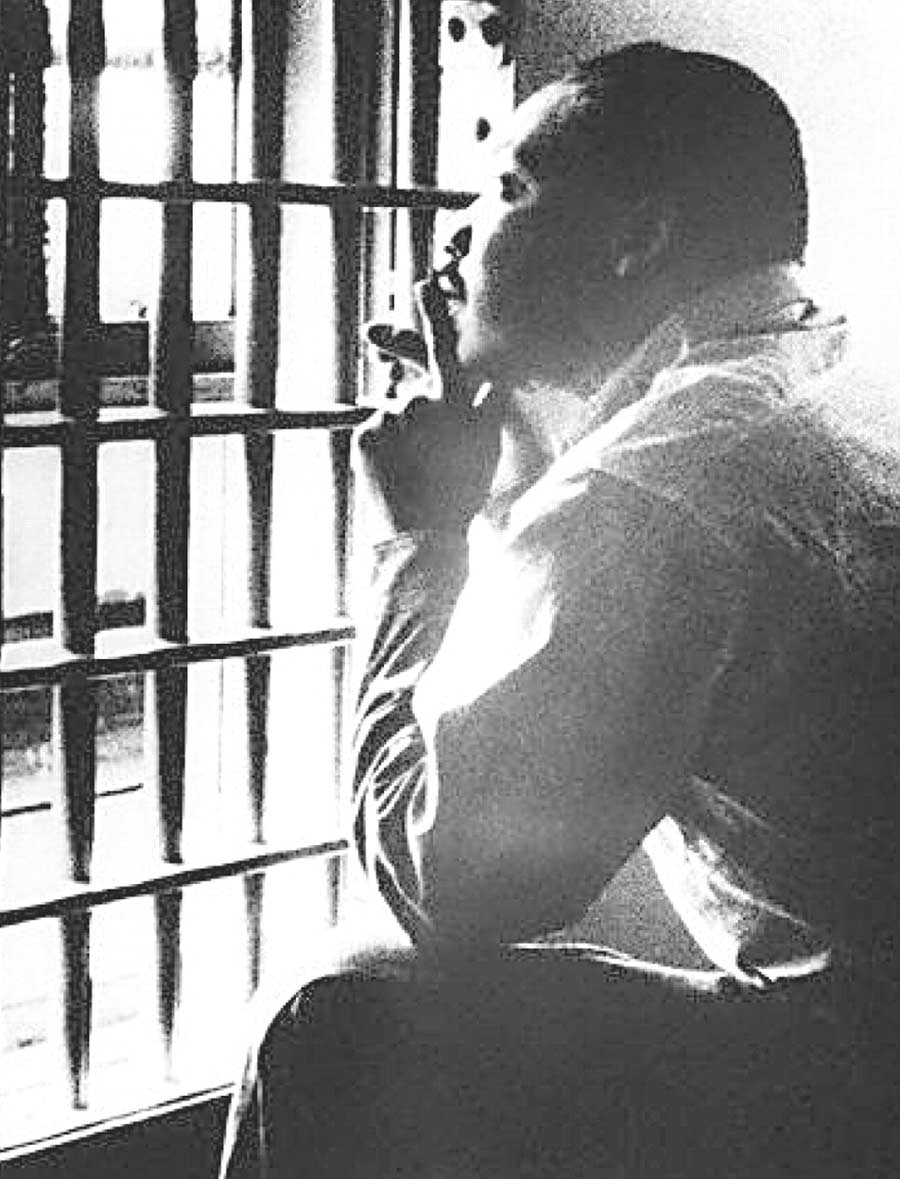In the annals of history, few figures command the reverence and admiration that Dr. Martin Luther King Jr. does. His profound impact on social justice, civil rights, and peace advocacy resonates not only within American society but also across global cultures. Yet, while countless tributes have been dedicated to his legacy, the Baha’i teachings offer a distinctive perspective on both mourning his demise and embracing his ethos through the lens of love.
The phrase “becoming extremists for love,” derived from a poignant excerpt in Dr. King’s writings, encapsulates a potent paradox. To be an ‘extremist’ typically evokes images of radical violence and intolerance. However, in the Baha’i worldview, it converges on an elevation of love to an unparalleled, transformative force. This juxtaposition invites contemplation about the necessity of radical love in a world often beleaguered by division and disdain.
Addressing the core tenets of Baha’i spirituality, one observes the principle of unity of humanity. Dr. King’s advocacy for civil rights emphasized the interconnectedness of all people, a conviction mirrored in Baha’i doctrine. The reverberations of his call for justice seasoned with love implore followers to view acts of love and compassion as instrumental in eradicating systemic injustices. This aligns with the belief that each individual is a reflection of a universal spirit, fostering a sense of communal responsibility toward societal healing.
Deeper still, the Baha’i teachings illuminate the essentiality of mourning as a precursor to profound societal transformation. Mourning, in this context, transcends mere sorrow; it evolves into a clarion call for action. Acknowledging Dr. King’s contributions invites engagement—not only in remembrance but in a commitment to carry forward his teachings through radical love. This revolutionary love requires individuals to act, not from a place of anger or retribution, but from love’s authentic essence, inspiring proactive engagement with social justice issues.
Incorporating a dialectic approach, one must ponder the multifaceted nature of grief in relation to Dr. King’s legacy. Mourning can often lead to paralysis; however, Baha’i teachings advocate for transforming personal grief into collective action. The call for love as a driving force means channeling emotions into endeavors that uplift communities and foster understanding. This cognitive alchemy reframes bereavement, providing a lattice through which individuals can engage with the struggles of marginalized groups.
As one traverses this intricate discourse, it becomes vital to grasp the significance of the “Beloved Community” that Dr. King envisioned. This concept, akin to Baha’i aspirations for a united global society, underscores the importance of nurturing empathy and kindness in human relations. The ideal world hinges on mutual respect, dialogue, and unwavering commitment to addressing the plights of others. Such convictions propel advocates of love toward a path where their actions echo positions of moral leadership in the quest for societal equity.
Interpersonal relationships, critically examined through this lens, shed light on the pathways to achieving systemic change. Both Baha’i teachings and Dr. King’s philosophies highlight that transformation begins at the individual level. Deepening compassion, fostering understanding, and celebrating diversity become paramount in engendering environments where injustice cannot thrive. It beckons the Baha’i follower to embody the very principles espoused by Dr. King, reminding us that love’s revolutionary potential is intrinsic to individual agency.
Moreover, it is essential to scrutinize contemporary interpretations and applications of Dr. King’s teachings. In the midst of globalization and social turmoil, many movements draw inspiration from King’s ideals; yet, the challenge remains: how can the essence of radical love effect meaningful change amid such a complex landscape? This inquiry resonates profoundly within Baha’i circles, particularly as followers embrace a collective mission centered on profound love, devoid of sectarian divisions or entrenched biases.
To navigate the tumultuous waters of societal unrest, recognizing love as an actionable force is paramount. It involves countering narratives steeped in fear and hatred with counter-narratives that celebrate our shared humanity. Herein lies the crux of the Baha’i perspective: every act rooted in love mitigates the fragmentation prevalent in contemporary society. When confronted with adversity and sorrow, the Baha’i teachings remind us to manifest love through consistent, tangible deeds, thus honoring Dr. King’s legacy effectively.
In summation, reflecting upon the interconnected strands of mourning Dr. King and the charge to become extremists for love reveals a profound ethical mandate. The legacy of Dr. King invites individuals to tap into a deeper reservoir of compassion, demanding that we do not merely lament his absence but actively embrace the radical principles of love he championed. It is through this lens—embodied in Baha’i spirituality—that one discovers the fortitude to forge a future resonant with justice, equity, and an unwavering commitment to the enhancement of the human condition.
